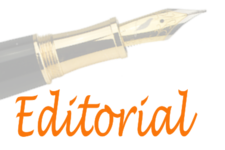
19/10/2022
In this Editorial, Leon Abelmann, Chair of ESM2022, Bertrand DUPE, Officer for Carbon Footprint and Olivier Fruchart, Officer for Higher Education present the outcome of ESM 2022.
Dear colleagues,
The European School on Magnetism was held this year from 11 to 23 September in Saarbrücken, Germany (ESM2022). As always, the aim of the school was to invest in the training of a new generation of research scientists and engineers, currently mostly at the stage of PhD candidates. The school was held in a hybrid format, with 78 participants attending on-site, 28 online, and at a local hub in Kaiserslautern, where some online participants gathered under the supervision of Matthias Weiler. This hybrid format was very successful, thanks to our experience of online formats accumulated since 2020. Especially, our Discord server allowed a better preparation of the participants and resulted in an excellent synergy during school. Finally, this year we have put special care into minimizing the carbon footprint of the event, combining coordination actions prior to the school starting date, organisational care on site, and incentive actions to convince the participants to travel to the school by train rather than plane.
As in previous years, ESM offered a first week full of lectures on a broad range of fundamental topics in Magnetism, followed in the second week by lectures on a specific theme. The theme this year was "Magnetism for Sustainable Development", in line with the UN International Year of Basic Science for Sustainable Development (IYBSSD). A major and specific aspect of this year was teamwork. Participants gathered in groups of 8-12, with mixed on-site and online participants, and worked collaboratively on various topics of sustainable development. These topics included reducing the power required for the internet, cleaning of water, re-use of permanent magnets, magneto-caloric fridges, and the detection and mitigation of coronal mass ejections. The projects provided a framework to turn the fundamental knowledge gained in lectures into practice. The projects were mentored by lecturers and organizers and were concluded by presentations on the last day of school.
In addition to the lecturers and projects, the participants were offered six hours of question & answer sessions, poster teasers and presentations sessions, a round table discussion on career development, tutorials and practicals hosted by partners of the Greater Region University in Kaiserslautern and Nancy. On Sunday, the participants visited the UNESCO world heritage site of the Völklinger ironworks, where they could experience firsthand how in the past iron was extracted from the ore. Finally, the lecture given by Mike Coey on permanent magnets was simultaneous streamed as EMA plenary lecture to over 150 additional viewers. All lectures were recorded and will be made available shortly on the EMA website.
We are now already busy working for the schools to come. ESM2023 will be held from 3 to 15 September 2023 in Madrid, chaired by Julio Camarero and Rodolfo Miranda, with the topic of Nanomagnetism for emerging technologies. ESM2024 will be held in York, chaired by Sarah Thomson. Hosting sites for schools in 2025 and beyond will be selected following a call for bids that we will launch next Spring. This long-standing series of schools perfectly illustrates the vision of EMA for ethical and sustainable implementation of actions promoting Magnetism. First, it is inclusive: open to all, independent from being registered to a given society or association; its cost is kept at a minimum to be affordable to all; the hybrid format allows everybody to participate, independent of their ability to travel. Second, it aims at a low carbon footprint, thanks to following strict guidelines for its implementation (link) and gathering participants at the regional European level, which makes train or hub-free plane connections viable in most cases.
All young research scientists: stay tuned until the next call for participation, due on 1st March 2023!
Leon ABELMANN, Chair of ESM2022
Bertrand DUPE, Officer for Carbon Footprint
Olivier FRUCHART, Officer for Higher Education






